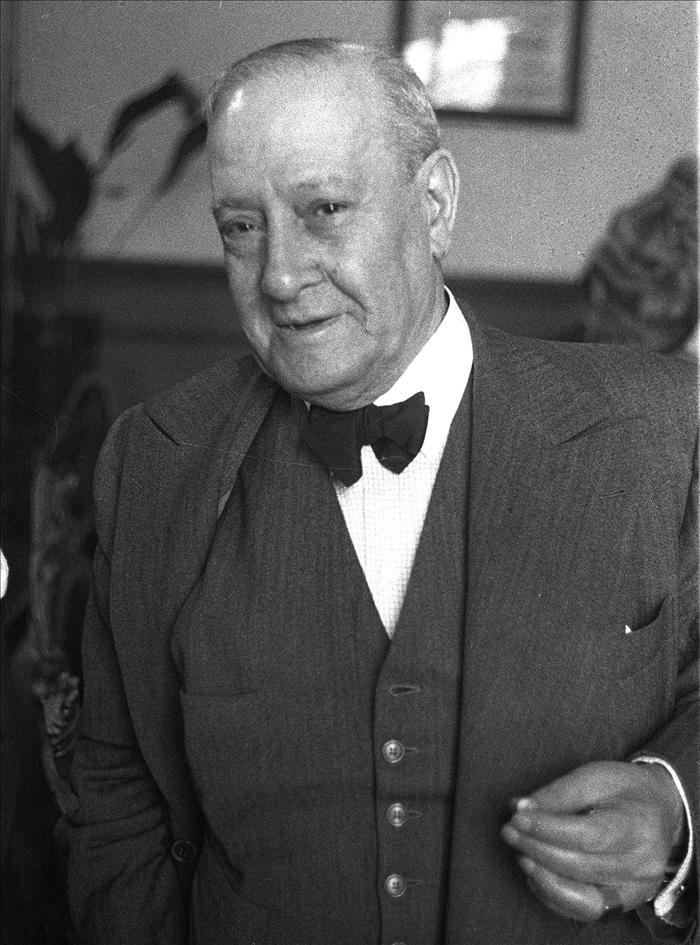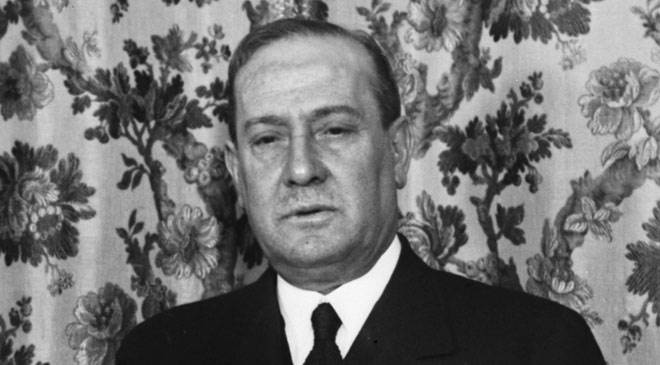<Back to Index>
- Poet Manuel Machado y Ruiz, 1874
PAGE SPONSOR


Manuel Machado y Ruiz (29 August 1874 in Seville – 19 January 1947 in Madrid) was a Spanish poet and a prominent member of the Generation of '98.
Manuel Machado was the son of Antonio Machado Álvarez, a known Seville folklorist nicknamed "Demófilo", and Ana Ruiz. His brothers were also a poet Antonio Machado and José Machado. He Inherited his father's love of popular Andalusian character. Born in San Pedro Martir Street, No. 20, his childhood was spent in the Palacio de las Dueñas, where his family had rented one of the zones reserved for individuals. When Manuel was 9, the whole family moved to Madrid, because the paternal grandfather had obtained a professorship at the Universidad Central. The desire of all three brothers was to study in the Free Institution of Teaching, led by Francisco Giner de los Ríos, a great friend of their grandfather Manuel.
The family moved to Madrid where he developed his studies, culminating with a Bachelor of Arts. Since then, his family returned to Seville on a few occasions, but Seville and Andalusia remained for him a living reference, however distant, for the love of parents towards their land.
In Madrid, Manuel began to publicize his first poetry and contributed to literary life in Madrid along with writers like Francis and Juan Ramón Jiménez Villaespesa.
He was co-founder, on February 11, 1933 of the Association of Friends of the Soviet Union, created in an era when the right held a condemnatory tone to the stories about the achievements and problems of socialism in the USSR.
Over the years, he became director of the Municipal Library (now the Municipal Historical Library) and Municipal Museum. He founded several short lived literary magazines and worked in daily newspapers in Europe and America.
He contributed to the modernist poetry, understood in its most colorful, decadent, cosmopolitan, thereby giving a hint of the potential of Andalusian poetry making something unique.
His work has often been opposed to the modernist side of the '98 Generation.
In 1936 - during the civil war, was appointed to a seat in the Royal Spanish Academy.
Brothers Manuel and Antonio wrote together several dramatic works in Andalusian. His most notable work is The Lola is going to ports, filmed twice.
Other works of Machado were the Duchess of Benamejí, La prima Fernanda, Juan de Manara, oleander, the man who died in war and Misfortunes of fortune or Julianillo Valcárcel. The civil war separated them, placing them on opposite sides.
Although the poetry of both is very different, we can see certain parallels. Thus, both composed autobiographical poems ("Adelfos", by Manuel, and "Portrait", by Antonio) using Alexandrine verses.
Upon arrival in Madrid of Franco's revolt in 1939, Manuel gave the military a encomiastic poetry, "The sword of the Caudillo." This earned him the recognition of the regime. After the war he returned to his post as director of the Newspaper Library and the Municipal Museum of Madrid, but retired shortly thereafter. He continued to write poetry, mostly religious in nature. His Catholic faith was rekindled during a stay in Burgos thanks to the devotion of his wife and the influence of certain priests, such as Bonifacio Zamora. The poet continued to write eulogies to various figures and symbols of Franco, which earned him the scorn of critics and later poets, who considered him a traitor to the Republican cause.
On January 19, 1947 died in Madrid. After the poet's death, his widow entered a religious order dedicated to caring for abandoned and sick children.
Then came the Spanish openness of the 60s and 70s, with early glimpses of the end of the Franco dictatorship. Franco embraced those poets who died, or were still living - in - exile. Thus, the work and the figure of Manuel Machado were eclipsed by those of Antonio Machado, more akin to the tastes of the time.